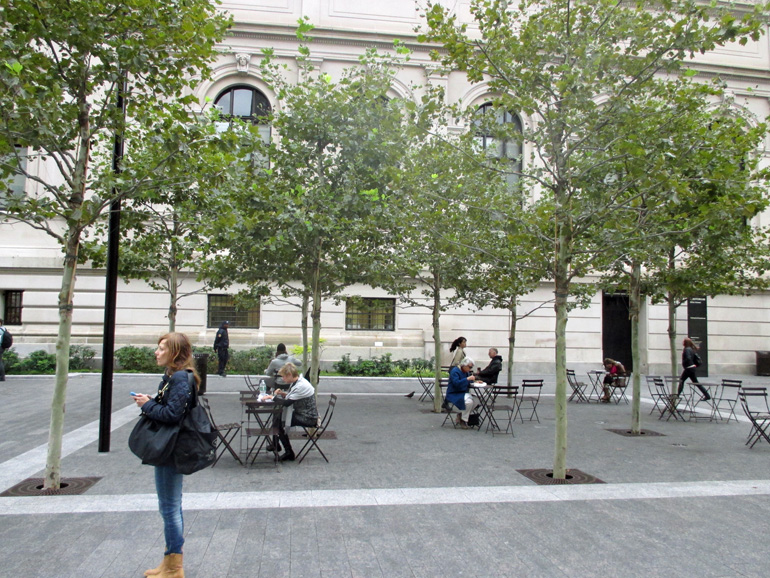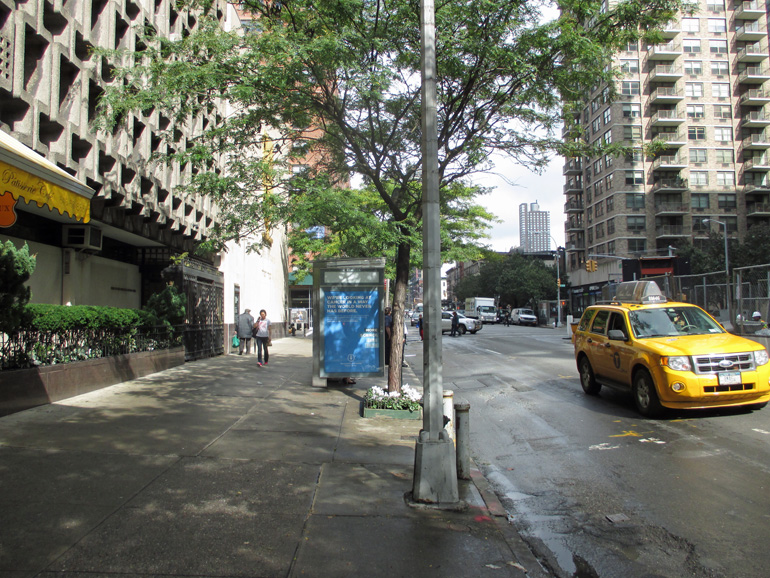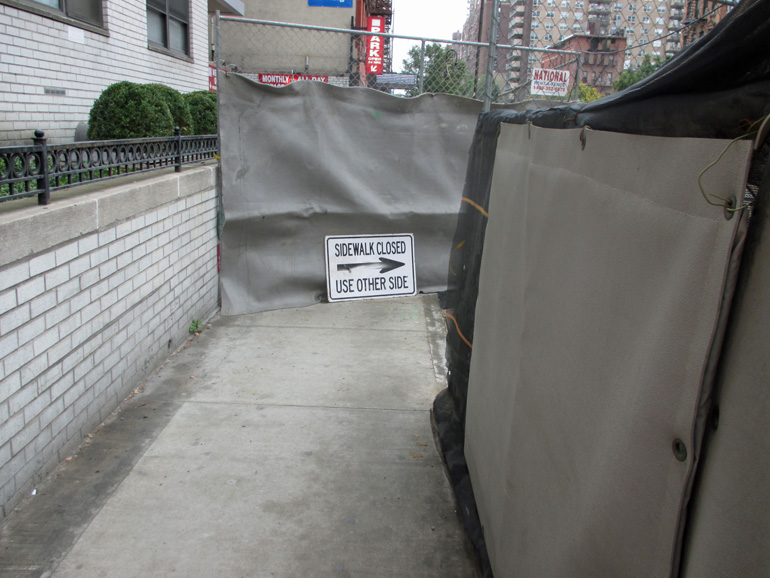Housekeeping Twaddle:
Preparing to Vacate
31 October 2014
Friday, October 31st, 2014
There are still a few books on the bookshelf in here, but we’ve run out of 16 x 12 x 12 book boxes, so they’ll have to wait a few days. On the table by the window, there are two stacks of books, books that will be neither packed nor given away. They’re my temporary library, assembled in snatches during the packing.
I will be glad, I have to say, to see the last of this room. I have spent a long time in it, and I have tired of its darkness, which is partly the fault of an oddly-sited window but mostly, obviously, the consequence of painting a room in a dark color. (The ceiling appears to be white, but it is actually a pale shade of the same blue.) I am happy to trade the blue room for a new room. I’m going to paint the bookshelves in a color chosen by Ray Soleil for the living room shelves, Malibu Peach. What with the white walls, I may need sunglasses.
What I’ll miss the least is the sheer oldness, the palpable wear and tear. The carpet is twenty-five years old, and the paint on the walls nearly twenty. The only way to freshen things up would be to do exactly what we’re doing now: vacate the premises. And where would we put the furniture in the mean time? Not to mention the books. The very pictures on the wall take up acres when they’re anywhere else. We’ve been quite literally boxed in. I’m determined to keep that from happening in the new place. We won’t have a panic room, but I hope to preserve a panic space. When we don’t need it, we’ll call it the ballroom. (In humble fact, we will call it the “foyer.”)
The chair in the picture won’t be coming with us. It is one of four dining chairs made for us in 1990. They were not particularly well made, and we were relieved when Kathleen’s parents, downsizing themselves not many years later, sent us four of their eight chairs, made far more sturdily in England. This chair is the lone survivor of our set. Its left arm is broken, and the whole chair wobbles when I sit in. When someone else sits in it, the left arm pops out, a violation of the laws of hospitality. The green container that gives the chair its colorful chaise percée look is full of toys that Will used to play with. Whether or not he actually plays with them next time he visits, he will certainly hunt them down. I wonder where they’ll be. Almost certainly not in the green tub. But somewhere. I’m looking forward to seeing pictures of Will in his Hallowe’en costume. Which of the three that his mother bought for him will he choose? Being me, I’m hoping for mix ‘n’ match.
I hope you can tell that the mahogany bookcase center right is empty. That’s why it’s hard to tell that it’s a bookcase.
***
Kathleen tells me that I’m holding up very well, that I’m taking the move much better than she thought I would. The awful truth is that, when I learned that we really would be moving, and where to, the news came as a deliverance. I’d been miserable for most of the spring and nearly all of the summer. Have you ever seen Roberto Rosselini’s wonderful (if bleak) Viaggio in Italia? At one point, Ingrid Bergman’s character is taken to see some pits in which lava bubbles at a low boil. That’s what this building’s elevators were like for most of the year, and still are, every now and then. Rumors about the building. Talk of leases not being renewed. The tale of a man who was stopped by security from trying to move out. It was quite sea-sickening. Kathleen was at work when most of this gossip fumed and sputtered, but I dreaded getting on the elevator, or passing a knot of tenants in the corridor. Although I didn’t know it at the time, the season of uncertainty began almost immediately after our neighbor committed suicide by jumping from her balcony. Did she see it coming? She was clinically depressed, I’m told. But I can’t be sure, especially at this remove in time, that she didn’t hear some preliminary remark, some vague suggestion that the building might be up for sale (as indeed it was), a sketchy comment that a healthy person would have overlooked, but that she, in her darkness, interpreted or over-interpreted. After she died, the chorus was invariable: “She was always complaining.” And what she was always complaining about was the building.
The news that we’d be moving came as a relief, not a shock. I had, I now see, been saying farewell to our home of thirty-odd years, day after day. I was wondering how much longer I’d be trying to keep it tidy. Reorganizing a closet or a cabinet felt dimly foolish, although I did it anyway, just as I will change the sheets and tidy the bedroom tomorrow — for the last time. The bedroom has been our living room for about three weeks, an island of calm. I can keep it that way for another week. Then it, too, will have to come apart.
How nice it must be to be rich enough to go away while all this happens, and to leave it to other people to see to. Yes, really — how nice! I can tell you that it has been rewarding, or something nearly as positive, to “go through my things” and to have whittled them down, but that’s true only because I’m stuck being my own housekeeper. If I weren’t, all this packing and sorting would be a senseless bore! A few weeks ago, I wrote a few pieces under the rubric “Broccoli,” in which I argued that the finer things in life are really quite pleasurable, not just good for you, and it was an argument that I can make quite sincerely. But if there is no longer anything aspirational about my appreciation of the arts and literature, I am still struggling to see the plus side of housekeeping. It has to be done, and it ought not to be done by anyone else — those are the ground rules, and they are broccoli. To be honest, I am trying hard to make broccoli more palatable. I’m a long way from sitting down to riz à l’impératrice.
Bon weekend à tous!




















